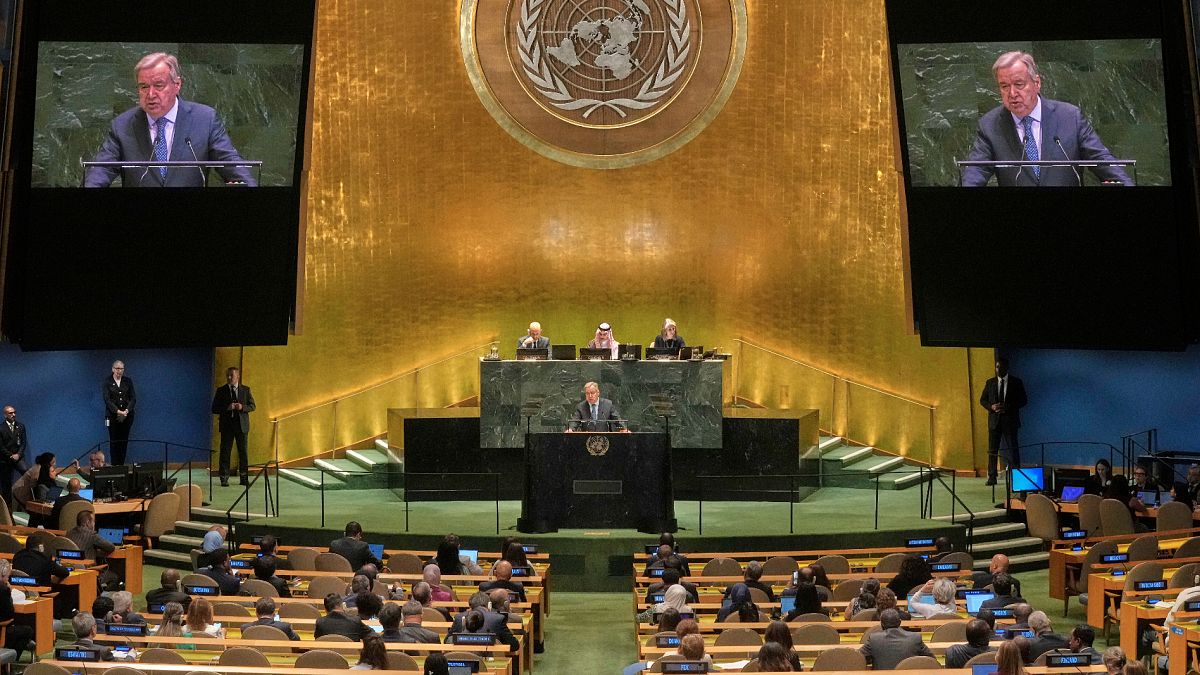

Amid ongoing tensions and complex international relations, a renewed global push for a peaceful resolution in the Gaza region has emerged, characterized by commitments from various international entities towards long-term peace and stability. The European Union and the Arab League have jointly reaffirmed their support for a two-state solution, advocating for cessation of hostilities and urging the disarmament of militant groups like Hamas.
This unified stance aligns with a document agreed upon at a United Nations conference, where nations collectively emphasized the importance of establishing peaceful coexistence between Israel and Palestine. The document charts a path towards resolving the current impasse, encouraging dialogue and cooperation as foundational to any sustainable peace process in the troubled region.
Across the Atlantic, the UK government, led by Prime Minister Keir Starmer, expressed a strong stance regarding the situation in Gaza, underscoring their commitment to recognizing Palestinian statehood unless significant progress is made towards ending the ongoing hostilities. The humanitarian situation in Gaza has become increasingly dire, drawing widespread criticism. International images depicting the grave humanitarian costs have only intensified global calls for a timely resolution.
Furthermore, the UK has charted a “pathway to peace,” seeking to terminate the conflict and address the humanitarian crisis that has plagued the area for over two decades. Despite the formidable historical challenges that have burdened previous efforts, the UK’s determination remains resolute, reflecting a sincere desire to contribute positively to the peace process initiated by global partners.
The notion of recognizing Palestinian statehood is gaining traction, with France already having declared its intention to acknowledge Palestine officially. This move underscores the growing international consensus for a diplomatic resolution, urging other nations to contemplate similar initiatives unless a meaningful ceasefire agreement can be enforced.
In another part of the globe, dialogues between the United States and China signal a promising effort to collaborate on pressing global issues. While primarily focused on economic considerations and tariff negotiations, this dialogue demonstrates an openness to constructive engagement, recognizing the intertwined nature of economic and political dynamics within the global community.
In the arena of international diplomacy, the multiplicity of voices advocating for peaceful resolutions offers a calming counterbalance to the conflicts that continue to disrupt regional peace. Although challenges remain, including divergent political agendas and historical grievances, the international community’s collective vision for peace and mutual understanding fosters hope for a sustained and positive transformation in the Gaza region.
This dynamic of robust dialogue, international cooperation, and a collective pursuit of stability signifies an overarching narrative of unity and hope. Each collaborative step taken – whether through diplomatic recognition or multilateral negotiation frameworks – strengthens the fabric of global peace efforts, making room for a future where coexistence and mutual respect thrive.
As global leaders continue working together, their shared commitment brings a sense of calm optimism to those affected by conflict, nurturing an environment where peace, mutual respect, and understanding can ultimately prevail. The concerted global efforts give testament to shared humanity, hoping to illuminate a peaceful path forward for Gaza and the wider region.
Source: {link}
